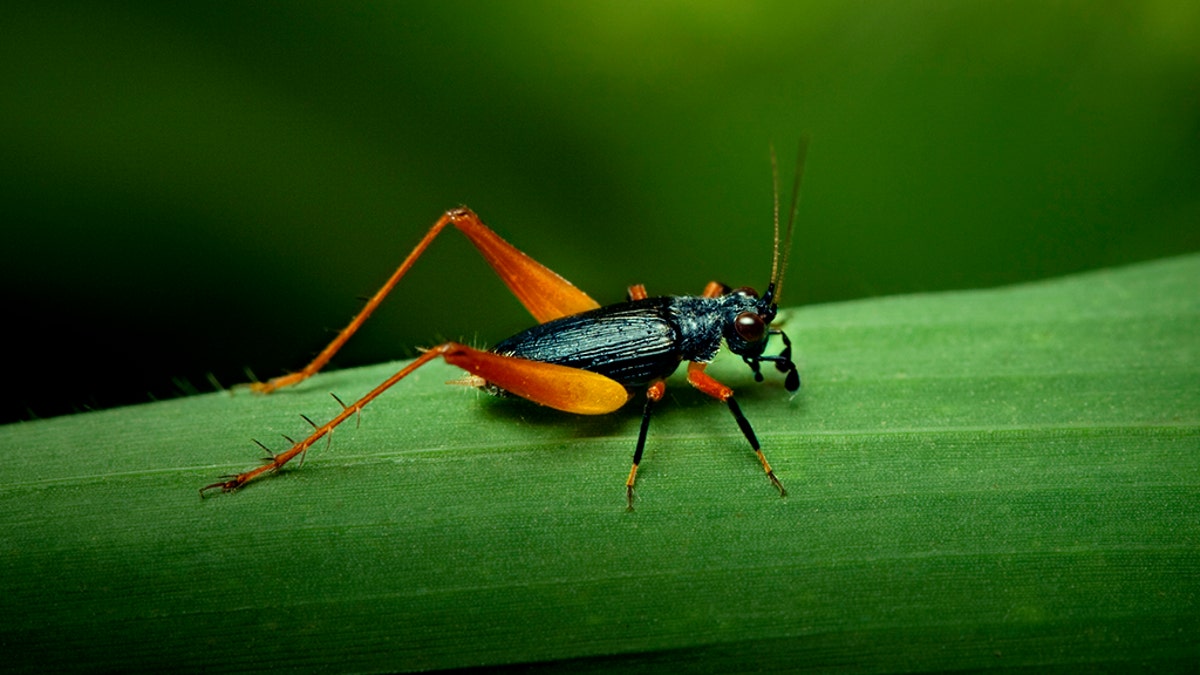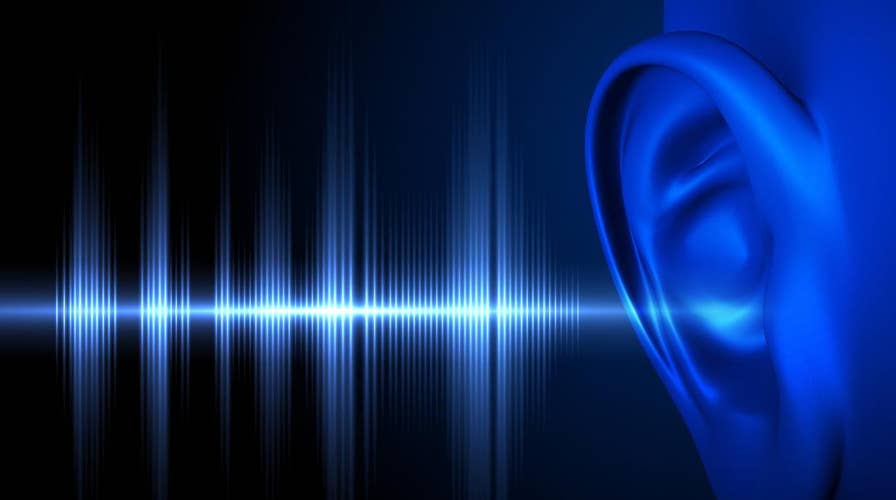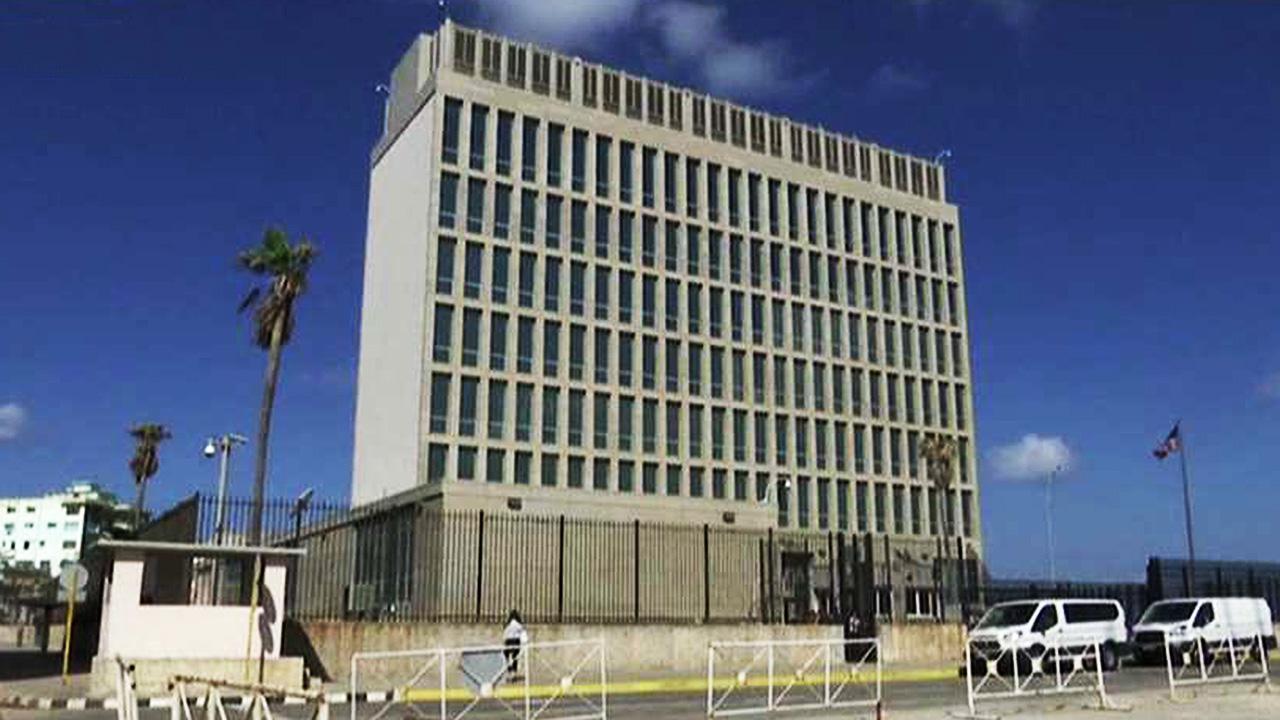Sonic weapon used to attack U.S. diplomats in Cuba?
U.S. and Canadian diplomats in Cuba were victims of a mysterious acoustic attack. What are sonic weapons and how are they used?
The mysterious high-pitched buzzing sound associated with suspected "sonic attacks" on U.S. diplomats in Cuba may have actually been caused by crickets, according to a report published Friday in a biology journal.
The strange incidents began in late 2016 when U.S. embassy personnel began seeking medical care for hearing loss and ear-ringing that was eventually linked to weird noises or vibrations — circumstances that initially led investigators to suspect the diplomats were victims of malicious "sonic attacks."
The Associated Press released audio in October 2017 of the high-pitched sounds heard in Havana, and that audio was then analyzed by a pair of researchers at the University of California, Berkeley and the University of Lincoln, in the United Kingdom.
CUBA CITES LACK OF EVIDENCE IN MYSTERIOUS SONIC ATTACKS ON DIPLOMATS
The findings, published Jan 4. in the preprint journal BioRXiv, determined the recording matched the sounds of the Indies short-tailed cricket known as Anurogryllus celerinictus, which is native to Cuba.

The mysterious buzzing that sickened dozens of diplomats in Cuba may have been caused by crickets, according to scientists. (iStock)
The scientists, Alexander Stubbs and Fernando Montealegre-Zapata, noted the sounds of the crickets matched "in nuanced detail, the AP recording in duration, pulse repetition rate, power spectrum, pulse rate stability, and oscillations per pulse."
The findings, which LiveScience reported were not yet peer reviewed, also noted the AP recording exhibited "frequency decay in individual pulses, a distinct acoustic signature of cricket sound production."
"While the temporal pulse structure in the recording is unlike any natural insect source, when the cricket call is played on a loudspeaker and recorded indoors, the interaction of reflected sound pulses yields a sound virtually indistinguishable from the AP sample," the scientists noted. "This provides strong evidence that an echoing cricket call, rather than a sonic attack or other technological device, is responsible for the sound in the released recording."
"HEALTH ATTACKS" ON U.S. DIPLOMATS IN CUBA STILL A MYSTERY SAYS NEW REPORT
The U.S. says that, since late 2016, 26 people associated with the embassy in Havana suffered problems that include dizziness, ear pain and ringing, and cognitive problems such as difficulty thinking. The U.S. has not definitively said what caused the incidents, although initial speculation centered on some type of sonic attack.
The AP has reported an interim FBI report in January 2017, however, found no evidence sound waves could have caused the damage.
The health mystery damaged U.S.-Cuba relations, with embassy staff pulled from the island and Americans warned not to visit. In an August 2018 advisory, the State Department warned Americans to "exercise increased caution" due to the unexplained incidents.
Cuban officials have adamantly denied involvement and even used a prime-time special, "Alleged Sonic Attacks," in October 2017 to point to a lack of evidence by U.S. officials.
US EMBASSY WORKERS IN CUBA FOUND TO HAVE BRAIN ABNORMALITIES, REPORT SAYS
Officials with Cuba's Interior Ministry said at the time that U.S. investigators had presented them with three recordings made by presumed victims of sonic attacks and that analysis of the sounds showed them to be extremely similar to those of crickets and cicadas that live along the northern coast of Cuba.
The program's narrator said unnamed "North American researchers" had also found some cicada and cricket noises could be louder than 90-95 decibels -- enough to produce hearing loss, irritation and hypertension in situations of prolonged exposure.
In December, a group of doctors revealed the American diplomats affected by the sounds showed damage in the inner ear shortly after they complained of weird noises and sensation. The detailed findings were published in a medical journal Laryngoscope Investigative Otolaryngology.
CLICK HERE TO GET THE FOX NEWS APP
Researchers examined 25 people who reported hearing a piercing noise or experiencing a sensation of pressure before their symptoms began. The patients failed a variety of tests that detect inner-ear problems associated with balance, what's called the vestibular system — although there were no pre-symptom medical records to compare the tests to.

Dr. Michael Hoffer, of the University of Miami Miller School of Medicine and a group of doctors presented their findings in the case of U.S. diplomats who experienced mysterious health incidents while working at the U.S. Embassy in Havana. (AP Photo/Lynne Sladky)
Testing of 10 other people who were in the same building at the time of the incidents found they were fine, according to Dr. Michael Hoffer of the University of Miami Miller School of Medicine.
"What caused it, who did it, why it was done — we don't know any of those things," Hoffer told the Associated Press at the time.
Fox News' Jennifer Earl, Nicole Darrah and the Associated Press contributed to this report.











































